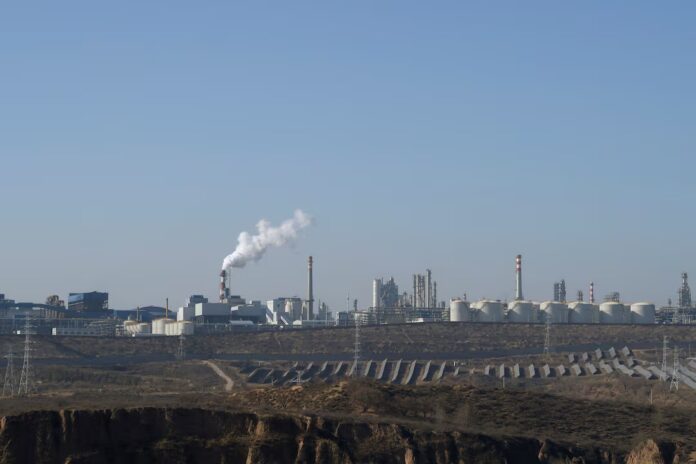
China has announced new climate commitments, placing itself at the forefront of global efforts to reduce greenhouse gas emissions, while indirectly criticizing U.S. President Donald Trump’s rejection of climate science at the United Nations.
Speaking via video link at a climate leaders’ summit hosted by U.N. Secretary-General Antonio Guterres, President Xi Jinping pledged that China would cut its emissions by 7–10% from their peak by 2035, the first time the world’s largest emitter has promised an actual reduction rather than a cap on growth.
He also vowed to increase China’s wind and solar capacity sixfold within the next decade, aiming to lift the share of non-fossil fuels in domestic energy consumption to over 30%.
“Green and low-carbon transformation is the trend of our times,” Xi said, calling on developed countries to take stronger action. Without naming Washington directly, he added:
“Despite some countries going against the trend, the international community should stay on the right track, maintain unwavering confidence, unwavering action, and undiminished efforts.”
His remarks came a day after Trump used his U.N. General Assembly speech to label climate change a “con job,” dismiss scientists as “stupid,” and reaffirm Washington’s second withdrawal from the Paris Agreement. Analysts say the move effectively cedes leadership in the post-carbon economy to Beijing.
“Trump wants fossil fuels and the United States is indeed a powerful petro-state,” said Ian Bremmer of the Belfer Center. “But letting China become the world’s sole powerful electro-state is the opposite of making America great again — at least if you care about the future.”
Observers, however, found China’s target underwhelming. Li Shuo of the Asia Society’s China Climate Hub said the pledge reflects Beijing’s preference for cautious, predictable policymaking but masks the country’s accelerating economic pivot toward renewables.
Other major economies also unveiled updated plans. Brazil promised a 59–67% emissions cut by 2035 and renewed its focus on halting deforestation. The European Union, while still finalizing its formal target, indicated a 66–72% cut by 2035.
Australia pledged to slash emissions by 62–70% from 2005 levels, and Palau, speaking for small island states, announced a 44% cut from 2015 levels.
Despite these moves, Guterres warned that global ambition remains insufficient to limit warming to 1.5°C. Current pledges, he said, leave the world on track for a 2.6°C rise, even after progress under the Paris Agreement.
“Now, we need new plans for 2035 that go much further, much faster,” he urged.
Brazilian President Luiz Inácio Lula da Silva echoed that warning, stressing that failure to act risks public trust. “Society is going to stop believing its leaders,” Lula said. “And all of us will lose because denialism may actually win.”
The climate summit comes just weeks ahead of the COP30 conference in Brazil, where pressure will intensify on major emitters to deliver sharper and more ambitious commitments.
Source: Reuters
Written By Rodney Mbua


















